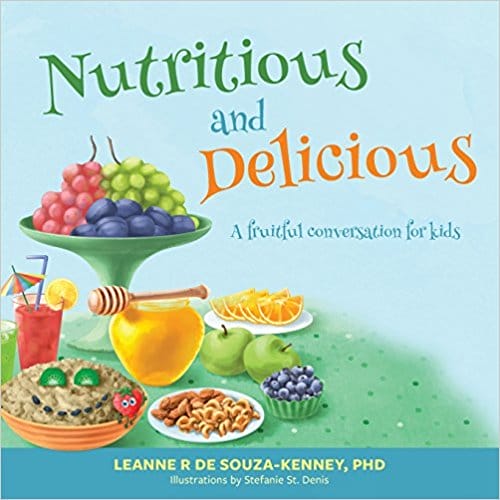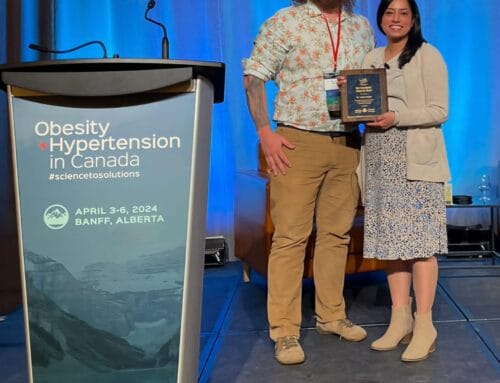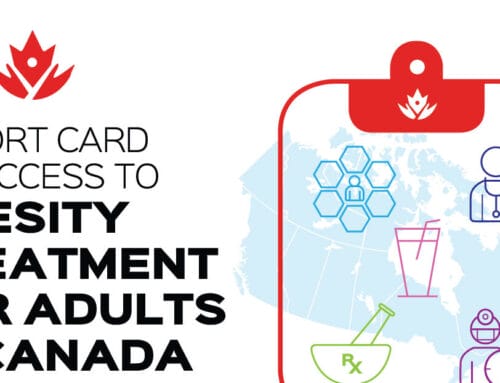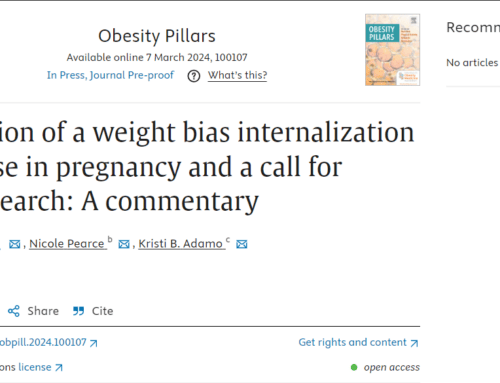Today’s guest post comes from Leanne De Souza. Leanne completed her PhD at the University of Toronto. She is also an author, a former CON-SNP National Executive, and CON Obesity Summer School (formerly known as Boot Camp) alumni. You can find more about Leanne here!
Tell it to the Marines!
Actually, tell it to the children! And make sure that they are SMALL enough to make BIG decisions.
I often contemplate where my research into screening and prevention of diabetes and cardiovascular disease might make a substantial impact. One element of the ideal prevention model would identify risk early enough to markedly impede incidence and would be initiated long before there was any real infringement of risk. In less round-about terms- the focus would be on those in the community who are at least immediate risk, but greatest eventual risk.
The notion of clinical significance and public health impact consumed my thoughts even while writing my dissertation. On a micro level, I considered how my educational pursuits and efforts would demonstrate for my own children, lessons of discipline, work ethic and following through on commitments. But I somehow longed to share the actual lessons I had learned in my research. One evening while reflecting with my husband on the age old adage: ‘if only we knew then what we know now’. We started to think about how we could realize that proverb for our children. Where in the course of their development do we have the conversation about the cycle of generations inflicted by cardiovascular deterioration? Then it dawned on us: ‘Why not tell them now?’ Perhaps we were on to something?
Most knowledge and skills shared with the public about metabolic disease prevention and treatment, especially those skills that are environmentally and behaviourally derived, begin with foundational conversations about topics such as portion sizes, balanced meals, self-regulation, making informed food choices, and the list goes on. These are all concepts that could be easily communicated to the youngest and likely the most receptive and impressionable of audiences- our children. Such concepts could be much more readily grasped and lifestyle approaches more easily implemented with the benefit of time and in a phase of early life when habits are largely being created rather than strained to be broken.
Many of the basics of making reasonable, educated dietary and lifestyle changes have withstood the test of time, including fluctuations in economy and agriculture, and influences of new research and social constructs. When we consider how to broach the subject of healthy lifestyle and nutrition with our children, the best way might be rooted in open dialogue that facilitates communication about diversity of cultural practices, traditions, and varied viewpoints in an ever-changing world. The global conversation that is already underway, should in fact invite children to be part of a simple but profound discussion, where they take past and existing ideas, concepts, and habits and re-examine, explore, question and apply new ideas.
The first time I had such a conversation about my own health was at twenty-five years old when a combination of health and life changes forced me to re-evaluate my health trajectory. As a parent some years later, only after completing two rounds of grad school, I ultimately learned a critical lesson from my 2 year-old through his curiosity about how we made food choices for our family, what we selected in the grocery store and why, and how we prepared food.
In those seemingly innocuous conversations with a toddler, I began to realize that by virtue of our decisions as parents, we were setting the foundation that could influence a metabolic disease trajectory in obesity, metabolism, diabetes and cardiovascular disease, yet on the surface, it was a straightforward, natural, honest conversation and hence my first children’s book: Nutritious and Delicious, A Fruitful Conversation for Kids, was born.
When it comes to the findings, we as scientists generate and learn from a rapidly evolving body of research, we think about knowledge translation. Organizations like the Canadian Obesity Network have the scope and mission to improve health through some of the most impressive forms of information sharing through community engagement and inclusivity. Perhaps there isn’t too soon a time or too early an age to tell the most vulnerable in our community that they can make a difference in their own lives and eventually in the lives of those around them just by giving them some simple tools like this expository book that invites them to partake in understanding the one decision they will make repeatedly in their day and countless times in their lives every time they engage with food. Nutritious and Delicious: A Fruitful Conversation for Kids is just the beginning.
Children will no doubt take us on a journey of learning and discovery, far greater than any experimental study. There are periods of awakening and enlightenment that have allowed generations before us to impact change. Arguably, when it comes to chronic metabolic diseases, the time is now for those scientists who are engaging in the fastest rate of discoveries using inferential reasoning every day- the children. All we need to do is to tell them what we know now.






